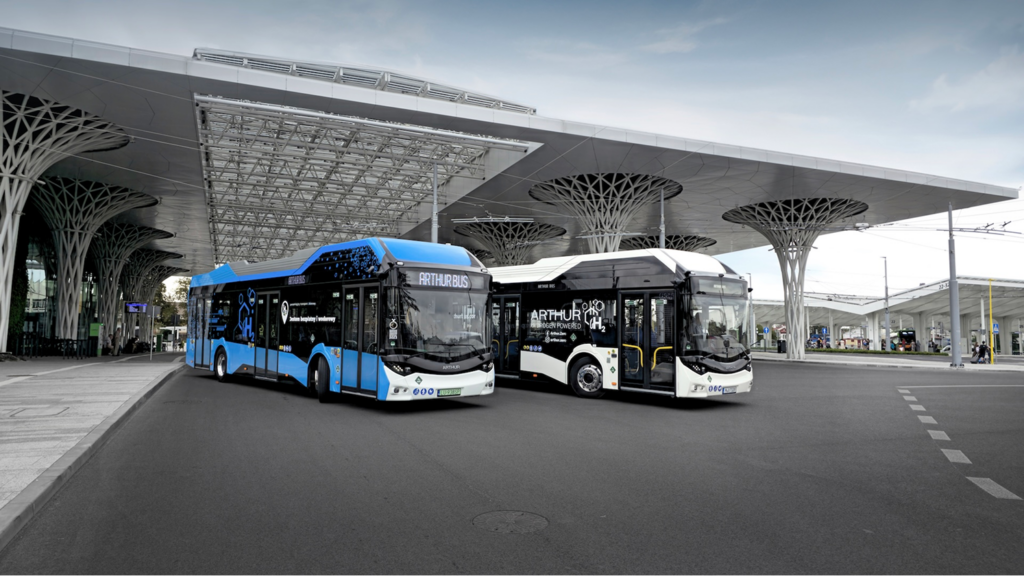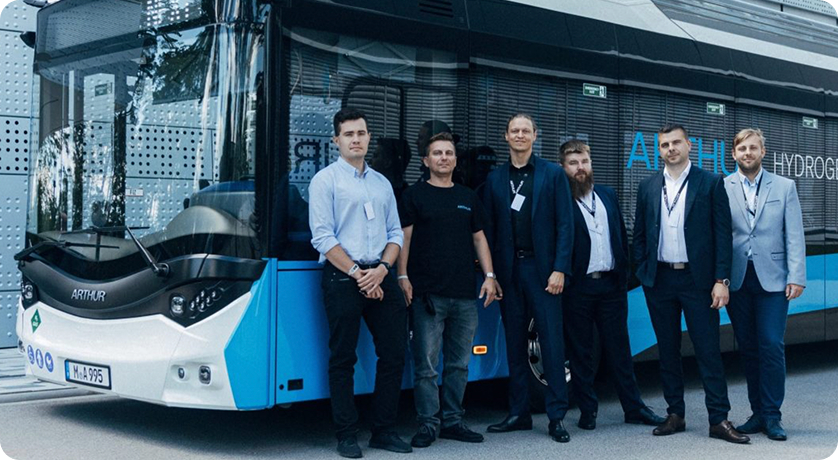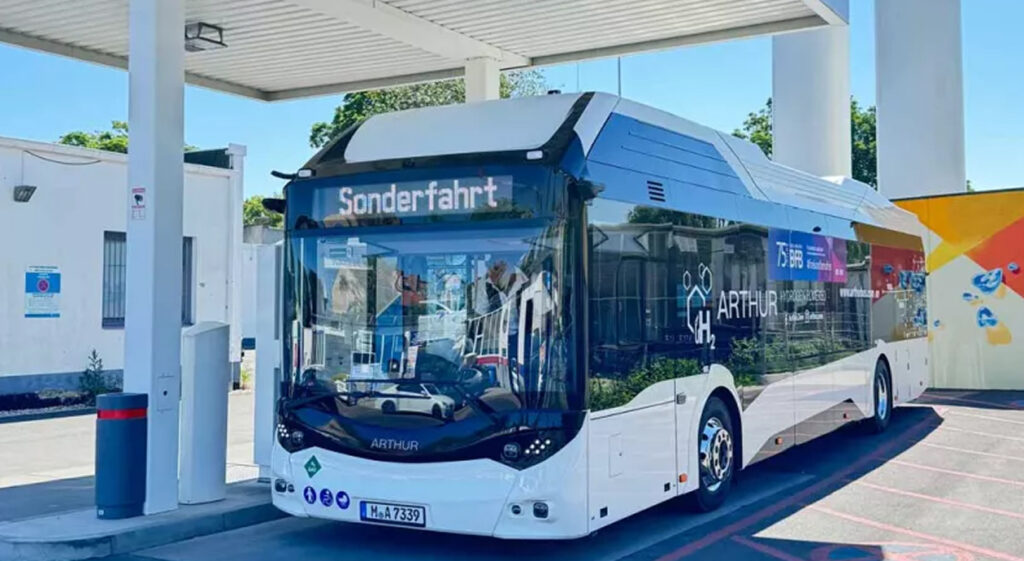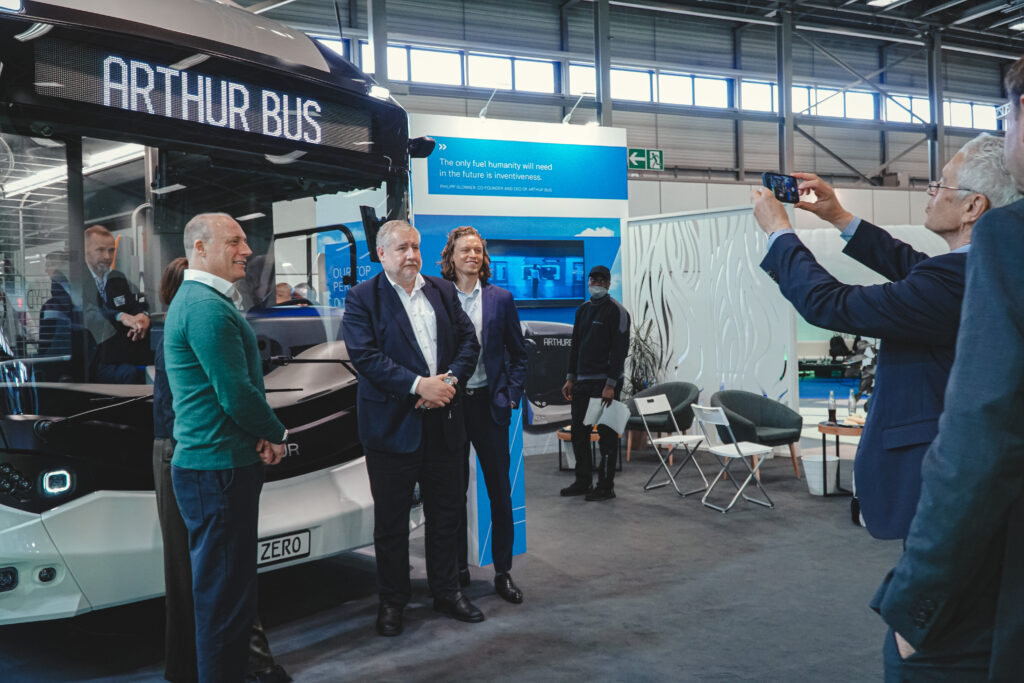Willkommen im ARTHUR BUS Blog – und auf unserer brandneuen Website.
We are stoked to be launching this blog alongside our new website – a dedicated space where we’ll share updates, insights, and developments in zero-emission mobility. With hydrogen-powered transport gaining momentum worldwide, we want to keep you informed about our role in shaping the future of sustainable public transport.
ARTHUR BUS and the ARTHUR ZERO Hydrogen Fuel Cell Bus
ARTHUR BUS is a German OEM specializing in hydrogen-powered public transport solutions. The ARTHUR ZERO is our flagship hydrogen fuel cell bus—designed, built, and homologated entirely in-house. As one of the few hydrogen fuel cell buses currently operating in Germany, it represents a new benchmark in sustainable transport.
ARTHUR BUS is part of the Mey Group, a holding company that oversees multiple engineering firms. Through this network, we not only build zero-emission buses but also contribute to broader technological innovations.

Hydrogen Mobility: A Fast-Growing Market
Germany and Europe are investing heavily in hydrogen as a fuel source, recognizing its potential for reducing transport emissions. As of January 2023, Europe had around 370 fuel cell buses in operation, with plans to expand that number to over 1,200 by 2025 (Sustainable Bus).
On a global scale, the hydrogen bus market is expected to grow from USD 1.87 billion in 2024 to over USD 41 billion by 2032, with an annual growth rate of 47.3% (Fortune Business Insights). These figures highlight how quickly hydrogen is emerging as a serious alternative to conventional fuels.
Why Hydrogen, and Why Now?
The transition to zero-emission transport isn’t just about reducing CO₂ emissions—though that remains a key priority. Hydrogen-powered vehicles offer several advantages over battery-electric alternatives, making them particularly well-suited for public transport:- Faster refueling – A hydrogen bus can refuel in under 15 minutes, compared to the hours required to recharge a battery-electric bus.
- Longer range – The ARTHUR ZERO bus can travel more than 500 kilometers on a single tank, making it a more practical choice for daily operations.
- Lower energy losses – Hydrogen fuel cells convert stored energy into electricity more efficiently in real-world transit conditions compared to some battery-electric systems.
What Sets ARTHUR ZERO Apart?
Several factors make the ARTHUR ZERO a unique hydrogen bus in today’s market:
- Designed and built in-house – While many manufacturers adapt existing vehicle platforms, ARTHUR BUS has developed its own chassis and design from the ground up. In just three years, we have taken the ARTHUR ZERO from concept to a fully homologated, road-legal bus.
- More than just a bus – Deploying hydrogen vehicles isn’t just about building buses—it requires an entire ecosystem. ARTHUR BUS works with partners to provide the necessary infrastructure, including hydrogen refueling stations and supply chains. This means we don’t just sell vehicles; we help operators transition to hydrogen-powered fleets.
- Efficient and future-proof – The ARTHUR ZERO bus is designed for efficiency, consuming less than 6 kg of hydrogen per 100 km. With its lightweight structure and optimized fuel cell system, it’s built to meet the needs of modern urban transit.
Looking Ahead
The hydrogen mobility sector is evolving rapidly, and ARTHUR BUS is helping to drive that change. With in-house engineering, industry partnerships, and a strong focus on infrastructure development, we’re not just introducing a new bus – we’re contributing to a sustainable public transport system.
This blog will keep you updated on new developments, industry insights, and the latest news on our hydrogen bus technology. Stay tuned, and explore our new website to learn more about our work and our vision for zero-emission mobility.
Erster deutscher Wasserstoffbus
Ein Münchner Start-up zeigt, wie Mercedes und MAN beim Thema Wasserstoffbusse abgehängt werden.



